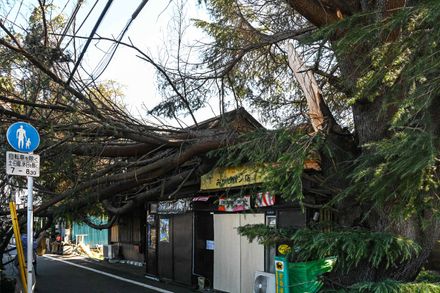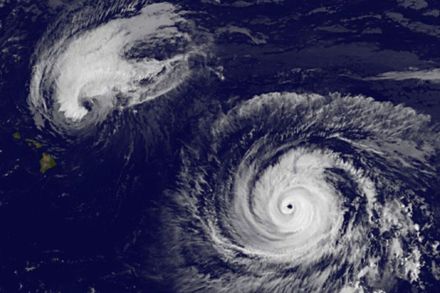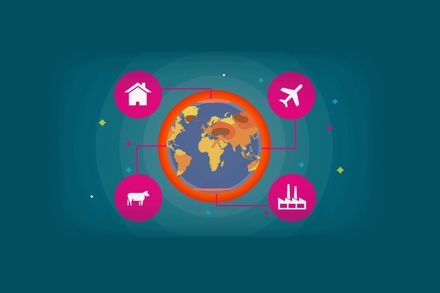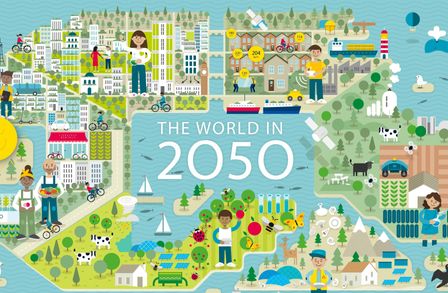Delegation
View our COP28 delegation and media contacts
Events
Find out more about events featuring members of the Imperial College London delegation at COP28
In a year of accelerating climate extremes and energy security crises, international collaboration to drive forward climate action has never been more essential – especially as the world is still far off track to reduce emissions in line with the Paris Agreement.
The 28th United Nations Climate Change Conference of the Parties (COP28), will be hosted in the United Arab Emirates from November 28 to December 10, 2023.
Countries will come together to discuss progress on the Paris Agreement through action on climate finance; implementing emissions reductions pledges; and enabling adaptation to the harms caused by climate change, in particular for those countries and communities that are most vulnerable. Practical action will be at the centre of COP negotiations, with record breaking temperatures over the last 12-months providing a stark reminder of the need to accelerate efforts in mitigation, adaptation and climate finance to build an inclusive COP28.
Our Imperial academic community aims to mobilise collective expertise to provide evidence for ambitious action at COP28. Read our background briefings on topics that are likely to be at the centre of COP28 discussions.
Priority content
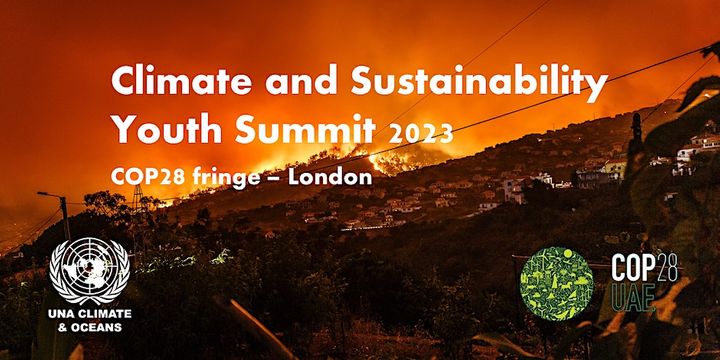
United Nations Association Climate & Oceans event
Climate and Sustainability Youth Summit 2023
2 December, 13.30 - 18.00 GMT, Imperial College London
The Grantham Institute is co-hosting the Climate and Sustainability Youth Summit during COP28. The event will showcase the 2023 Youth Proposal which documents a potential solution to Net-Zero in the UK. You will have the opportunity to engage in thought-provoking discussions, participate in interactive workshops, and connect with like-minded individuals who share your passion for climate action and sustainability. Find out more about the event.
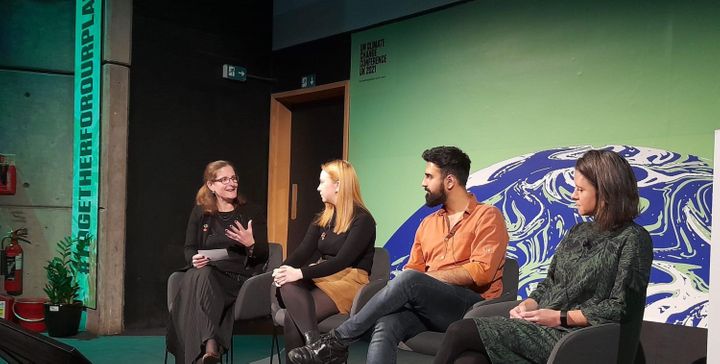
UK Universities Climate Network
The UK Universities Climate Network (UUCN) is a growing group over 80 UK-based universities and research centres working together to deliver a low carbon, resilient world. Co-ordinated by the Grantham Institute, the network enables collaboration across the UK academic sector to advance climate action nationally and internationally. Find out more about the UUCN activities and members.
Explore our work
Imperial voices on climate and environment

Dr Gbemi Oluleye, Imperial College Research Fellow
Dr Gbemi Oluleye discusses cutting emissions from industrial sectors.
Dr Gbemi Oluleye, Imperial College Research Fellow, discusses her research on cutting greenhouse gas emissions from industrial sectors.

Dr Joeri Rogelj, Director of Research at Grantham Institute
Dr Joeri Rogelj discusses how his research helps to inform international climate targets.
Dr Joeri Rogelj, Director of Research at the Grantham Institute, discusses how his research helps to inform international climate targets to limit global warming to 1.5°C.

Dr Bonnie Waring, Senior Lecturer at the Grantham Institute
Dr Bonnie Waring discusses the carbon cycle and how far forests can help tackle climate change.
Dr Bonnie Waring, Senior Lecturer at the Grantham Institute, discusses her research on the carbon cycle and how far nature-based solutions like tree planting can be effective in helping to tackle climate change.
.jpg)
Dr Friederike Otto, Senior Lecturer at the Grantham Institu
Dr Friederike Otto discusses her research and attribution science.
Climate change is altering weather events across the world, and has been for years, says Dr Friederike Otto, Senior Lecturer at the Grantham Institute and Founder of the World Weather Attribution project. It is killing people, destroying livelihoods and causing enormous economic damage across the world - and those who are paying the costs are not those who have caused the problem. Dr Otto discusses her research, which connects the academic understanding of climate change with what people experience, why it's so important to reduce vulnerability to climate change, and climate justice.

Dr Madeleine Morris, Research Associate at the Grantham Inst
Dr Madeleine Morris discusses her research on the policy and regulation of the energy system.
Dr Madeleine Morris, Research Associate at the Grantham Institute, discusses her research on whether the policies, regulations and market structures of today's energy system are fit for purpose for a future energy system that fits into a net-zero world.

Naveed Chaudhry, Accelerator Lead at the Grantham Institute
Naveed Chaudhry on the role of entrepreneurs and startups in tackling climate change.
Naveed Chaudhry, Accelerator Lead at the Grantham Institute, discusses the role of entrepreneurs and startups in tackling climate change, and how innovation can help create a cleaner, greener future.

Dr Mirabelle Muûls, Assistant Professor of Economics
Dr Mirabelle Muûls discusses her research on the economics of climate change.
Dr Mirabelle Muûls, Assistant Professor of Economics at Imperial College Business School, discusses her research on the economics of climate change and the impact of climate change on businesses.
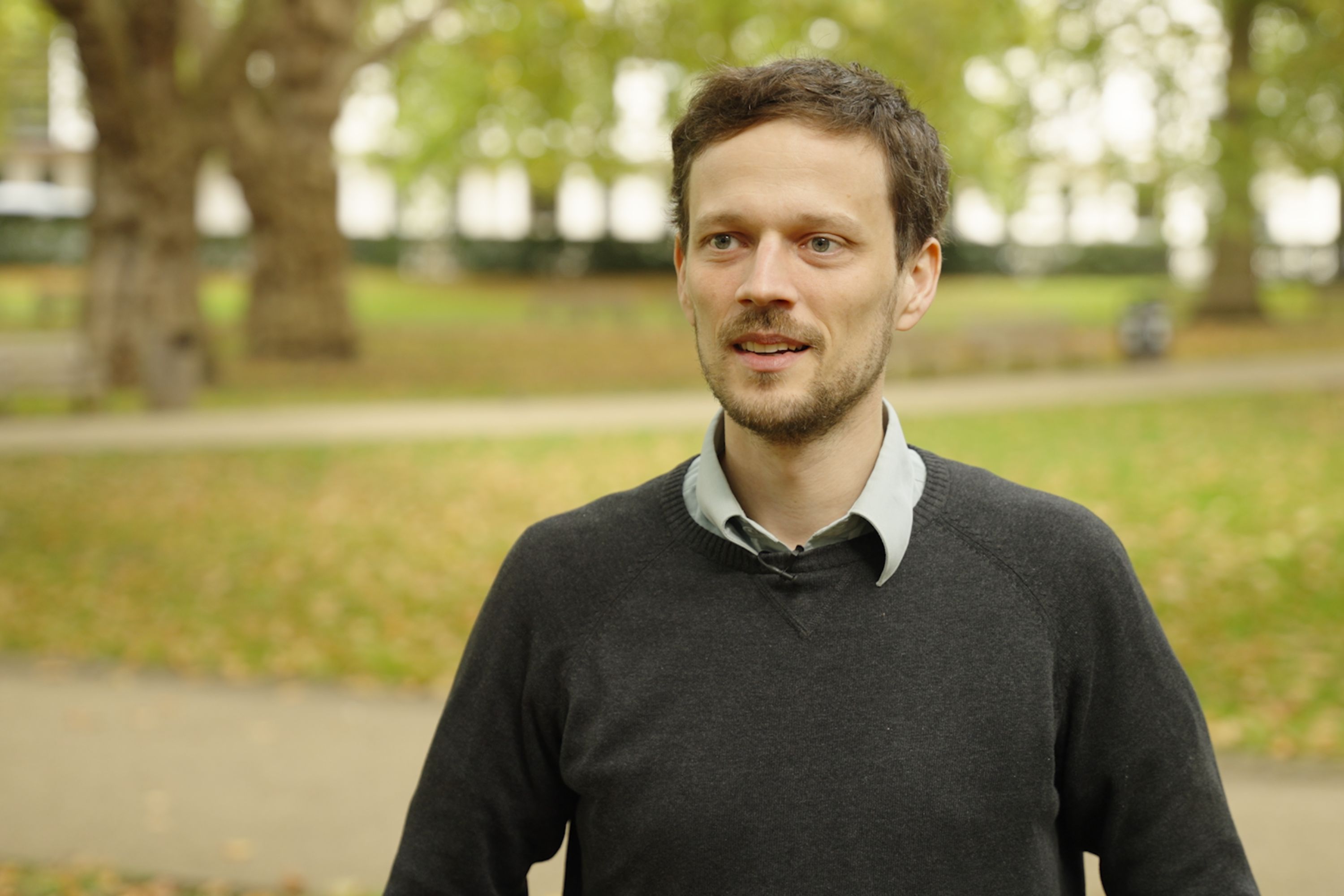
Dr Edward Gryspeerdt, Proleptic Lecturer at the Grantham Ins
Dr Gryspeerdt explains about his work studying the impact of human activity on cloud formation.
Greenhouse gases (GHGs) aren’t the only contributors to global warming created by flying – the clouds formed high up in the atmosphere by planes have a significant impact too. Understanding them better could offer valuable ways to change aviation and reduce its impact on the climate. Dr Edward Gryspeerdt, Research Fellow and lecturer, in the Grantham Institute, explains more about his work studying the impact of human activity on cloud formation.
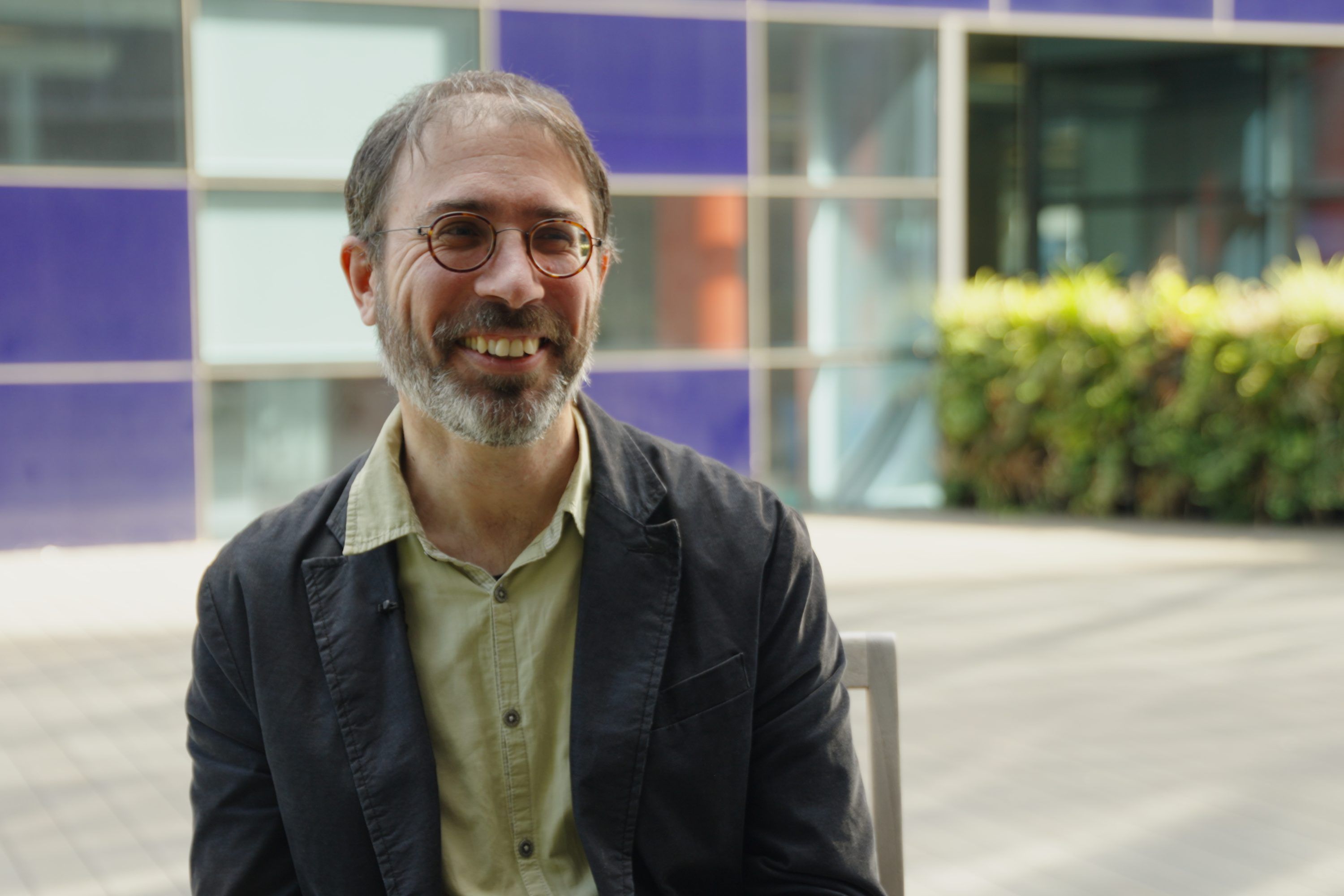
Professor Wouter Buytaert, Professor of Hydrology and Water
Droughts and floods will become more extreme if we don’t act on climate, says Professor Buytaert
Dr Oytun Babacan, Imperial College Research Fellow at the Grantham Institute, discusses his research on low-carbon Too much, or too little water, is increasingly having devastating impacts on communities around the world. Wouter Buytaert, Professor of Hydrology and Water Resources in the Department of Civil and Environmental Engineering, tells us more about this precious resource.energy technologies and how to integrate emerging technologies into existing infrastructure.

Dr Oytun Babacan, Imperial College Research Fellow
Dr Oytun Babacan on low-carbon technologies and how to integrate them into existing infrastrure.
Dr Oytun Babacan, Imperial College Research Fellow at the Grantham Institute, discusses his research on low-carbon energy technologies and how to integrate emerging technologies into existing infrastructure.
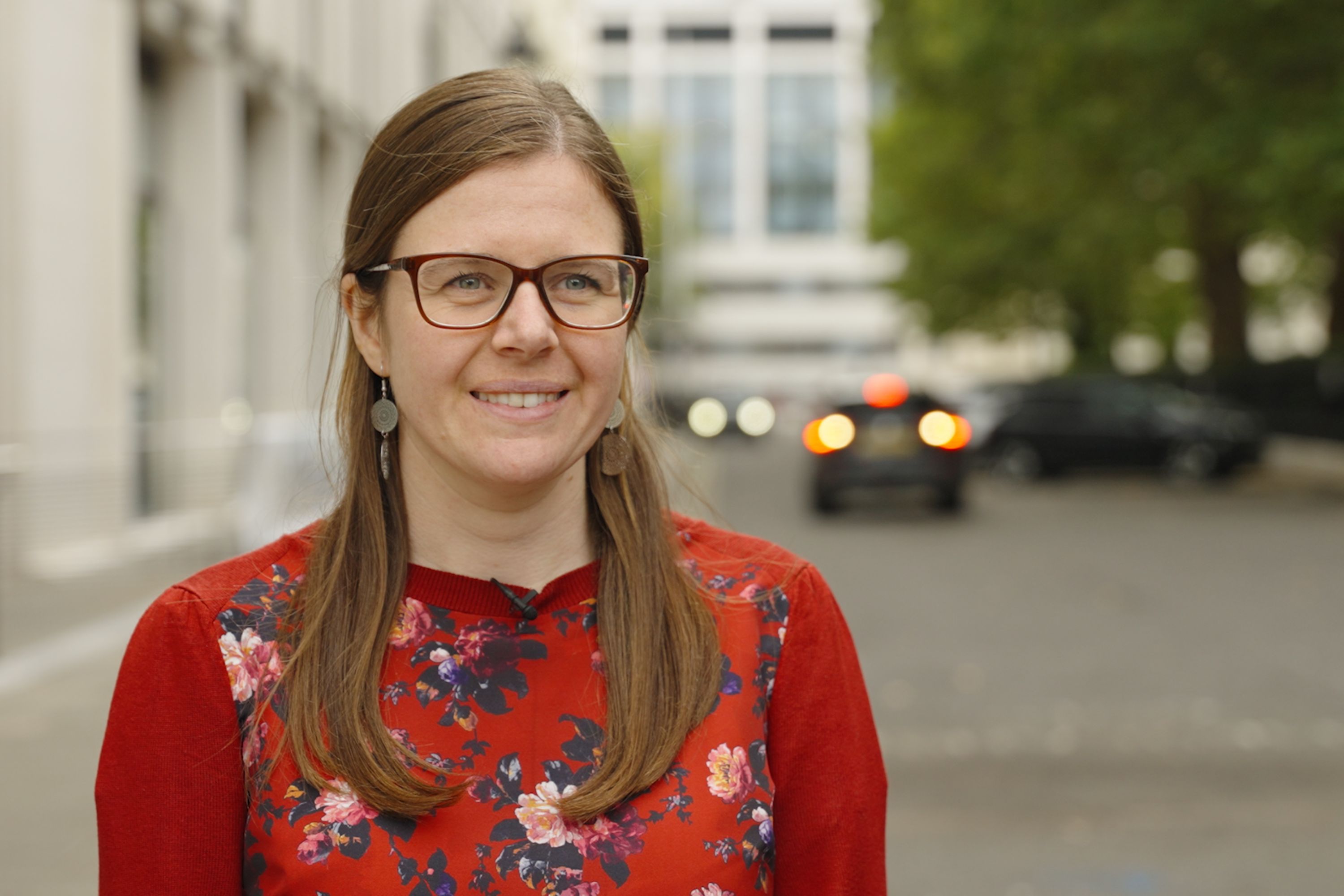
Dr Caroline Wainwright, Grantham Institute Research Fellow
Dr Caroline Wainwright on seasonal rainfall and variability in Africa
Dr Caroline Wainwright, Grantham Institute Research Fellow and expert in African weather and climate, discusses how global temperature changes are affecting seasonal rainfall in the world’s tropical regions, particularly sub-Saharan Africa, and why better weather forecasting and early warning systems are so important for local people.
Sustainability at Imperial
Find out more about what Imperial is doing on sustainability at the College.
Grantham Institute blog
Read more- Negotiating for nature: the biodiversity conference and key themes
- What I learned about teamwork in the Grantham Expedition Team
- Powering Africa: new model compares options for off-grid solar in 43 countries
- Biodiversity credits: key principles and UK strengths
- AirEx Technologies Secures BBA Certification: Pioneering the Future of Retrofit Innovation
- Inside Isometric Outcomes’ Mission: Dehumidification & Heat Recovery
